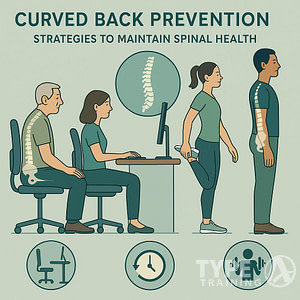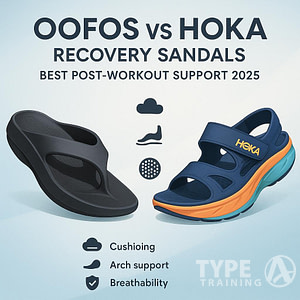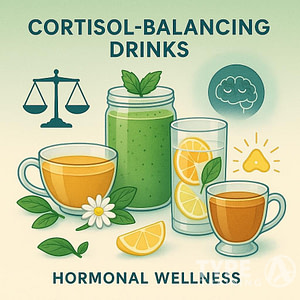The pharmaceutical industry plays a crucial role in global healthcare, but it’s not without its ethical challenges.
From drug pricing to clinical trials, the sector faces numerous controversies that impact patients, healthcare providers, and society at large.
Ethical decision-making in the pharmaceutical industry is critical for balancing profit motives with patient welfare and public health concerns.
Popular posts:
Navigating these ethical dilemmas requires a deep understanding of the complex interplay between business interests, scientific innovation, and moral obligations.
The top 6 ethical controversies in the pharmaceutical industry encompass issues like drug pricing and accessibility, research practices, marketing tactics, and regulatory compliance.
By examining these controversies, you can gain insight into the challenges facing the industry and the potential solutions being proposed.
As you explore these ethical issues, you’ll discover how they shape the development, distribution, and marketing of life-saving medications.
You’ll also learn about the ongoing efforts to establish and maintain ethical standards within the industry.
These standards balance the need for innovation with the imperative to protect patient safety and public trust.
Key Takeaways
- Ethical decision-making in pharmaceuticals balances profit with patient welfare and public health.
- Drug pricing, research practices, and marketing tactics are major ethical concerns.
- Efforts to establish ethical standards aim to protect patients while fostering innovation.
Exploring the Relationship Between Big Pharma and Healthcare
The pharmaceutical industry and healthcare sector have a complex, intertwined relationship that impacts patient care and medical practices.
This connection raises important ethical questions about conflicts of interest and the influence of profit motives on health outcomes.
Pharmaceutical Companies’ Impact on Healthcare
Big Pharma’s influence on policymaking has significant implications for healthcare.
You’ll find that pharmaceutical companies often shape treatment guidelines and fund medical research, potentially skewing clinical decision-making.
Their marketing efforts target healthcare professionals, influencing prescribing habits. This can lead to increased use of brand-name drugs over generic alternatives, driving up costs for patients and insurers.
Pharmaceutical companies also play a crucial role in drug development and innovation. However, their focus on profitability may prioritize lucrative treatments over those with greater public health impact.
Ethical Considerations in Patient Care
As a patient, you should be aware of the ethical dilemmas arising from the relationship between pharmaceutical companies and healthcare providers.
Conflicts of interest can emerge when doctors receive gifts, speaking fees, or research funding from drug manufacturers.
These financial ties may influence prescribing decisions, potentially compromising patient care.
It’s important to question whether your treatment is based solely on medical need or if other factors are at play.
Transparency in clinical trials and drug pricing is another crucial ethical issue. You have the right to accurate information about medication efficacy and potential side effects.
Healthcare professionals face the challenge of balancing industry relationships with their duty to provide unbiased, patient-centered care.
Many institutions now implement strict conflict of interest policies to address these concerns.
Drug Pricing and Accessibility Challenges
Drug pricing and accessibility pose significant ethical dilemmas in the pharmaceutical industry.
You’ll find complex issues surrounding the balance between profit, research costs, and ensuring patients can access life-saving medications.
The Dilemma of Drug Costs
Drug pricing practices create tension between pharmaceutical companies’ need to recover R&D costs and generate profits, and patients’ ability to afford essential treatments. High prices can effectively bar access to crucial medications.
You’ll see drug costs skyrocket for various reasons:
- Extensive research and development expenses
- Limited patent lifespans
- Market exclusivity periods
- Complex manufacturing processes
These factors contribute to unjustifiable and unaffordable prices, putting immense strain on healthcare systems and individual patients.
Balancing fair pricing with continued innovation remains a critical challenge.
Access to Medicines and Patient Autonomy
Your ability to access necessary medications directly impacts your health outcomes and quality of life.
High drug prices can limit treatment options, forcing difficult choices between health and financial stability.
Key issues include:
- Geographical disparities in drug availability
- Income-based access inequalities
- Insurance coverage gaps
- Orphan drug pricing for rare diseases
These factors can severely restrict patient autonomy, leaving you with limited control over your own healthcare decisions.
Ensuring equitable access to medicines is crucial for upholding ethical standards in healthcare.
Financial Incentives and Exploitation Concerns
You should be aware of the potential for exploitation within the pharmaceutical industry due to profit-driven motives.
Financial incentives can sometimes overshadow ethical considerations.
Areas of concern include:
- Aggressive marketing tactics
- Influencing prescribing practices
- Prioritizing profitable drugs over essential medicines
- Manipulating drug prices based on market demand
These practices can lead to exorbitant drug pricing that challenges distributive justice principles.
It’s crucial to strike a balance between rewarding innovation and preventing exploitation of vulnerable patient populations.
Intellectual Property and Patent Law Ethics
Pharmaceutical patents raise complex ethical questions about balancing innovation incentives with public health needs. Patent laws aim to reward drug development while ensuring access to medicines.
Patent Protection and Public Health
Patent protection grants pharmaceutical companies exclusive rights to manufacture and sell newly developed drugs. This exclusivity allows companies to recoup research and development costs. You can expect patent terms to last around 20 years from the filing date.
Patent laws impact access to medicines, especially in developing countries. Critics argue patents keep drug prices high and limit availability. Defenders say patents are necessary to fund future drug discovery.
Generic versions of patented drugs can only be produced after patent expiration. This delay in generic competition affects affordability and accessibility of important medications for many patients.
Moral Duty of Patent Exclusivity
Pharmaceutical companies have a moral duty to balance profit motives with public health needs.
You should consider how patent exclusivity affects global access to life-saving drugs.
Some argue companies have an ethical obligation to allow generic production of critical medicines, even before patents expire. Others contend patent rights are crucial for continued pharmaceutical innovation.
Potential solutions include:
- Tiered pricing models for different markets
- Voluntary licensing agreements
- Patent pools for essential medicines
These approaches aim to increase access while preserving innovation incentives.
The ethical debate centers on finding an appropriate balance between intellectual property rights and public health priorities.
Regulatory Affairs and Compliance in Pharma
Regulatory affairs and compliance are critical aspects of the pharmaceutical industry. They ensure that companies adhere to ethical standards and legal requirements throughout drug development and marketing processes.
Importance of Ethical Standards and Regulations
Ethical standards and regulations in pharma protect patient safety and maintain public trust.
You’ll find that compliance with these standards is not optional – it’s a legal and moral imperative.
Maintaining proper records of maintenance, cleaning, and inspections is crucial. Failure to do so can result in serious consequences.
Regulatory bodies like the FDA enforce strict guidelines. These cover clinical trials, manufacturing practices, and marketing activities.
Pharmaceutical companies must invest heavily in compliance departments.
These teams ensure adherence to complex regulations across different markets.
Non-compliance can lead to hefty fines, legal action, and damage to reputation.
It’s in your best interest to prioritize regulatory affairs.
PhRMA and Industry Guidelines
The Pharmaceutical Research and Manufacturers of America (PhRMA) plays a key role in setting industry standards.
They provide guidelines that go beyond legal requirements.
PhRMA’s Code on Interactions with Healthcare Professionals is a prime example. It outlines ethical practices for marketing and promotional activities.
You’ll find these guidelines address issues like gifts to healthcare providers and sponsorship of educational events. They aim to prevent conflicts of interest and maintain ethical standards.
Many pharmaceutical companies voluntarily adopt PhRMA guidelines.
This demonstrates a commitment to ethical practices beyond mere legal compliance.
Industry-wide adoption of these standards helps maintain public trust. It also promotes fair competition and responsible business practices.
The Ethics of Clinical Trials and Research
Clinical trials and research in the pharmaceutical industry raise significant ethical concerns.
Key issues include obtaining proper informed consent, ensuring subject safety, maintaining transparency, and adhering to ethical reporting standards.
Informed Consent and Subject Safety
You should know that informed consent is crucial in clinical trials.
Researchers must fully explain the risks and benefits to participants. This includes potential side effects, expected outcomes, and alternative treatment options.
Subject safety is paramount. Trials must have rigorous safety protocols in place.
These include:
- Regular health monitoring
- Clear criteria for stopping the trial if risks become too high
- Access to emergency medical care
Vulnerable populations require special protection.
Transparency and Ethical Reporting
Transparency in clinical trials is essential for ethical research. You should be aware that all trial results must be reported, including negative or inconclusive findings.
This prevents publication bias and ensures a complete understanding of drug effects.
Key aspects of ethical reporting include:
- Registering trials in public databases before they begin
- Sharing detailed protocols and statistical analysis plans
- Providing open access to anonymized patient-level data
Ethical reporting also means disclosing conflicts of interest. Researchers must declare any financial ties to pharmaceutical companies or other potential sources of bias.
Drug development relies on trust in the research process. By prioritizing transparency, the industry can maintain public confidence and advance medical innovation responsibly.
Marketing Ethics in Pharmaceutical Industry
Marketing practices in the pharmaceutical industry raise significant ethical concerns. The industry’s promotional strategies and financial relationships with healthcare providers have come under scrutiny for potentially influencing prescribing behaviors and patient care.
Direct-to-Consumer Advertising and Its Impacts
Direct-to-consumer advertising (DTCA) of prescription drugs is a controversial practice. You may have noticed an increase in TV commercials and magazine ads for medications.
This type of promotion can inform patients about treatment options, but it also has drawbacks.
DTCA may lead to unnecessary prescriptions and higher healthcare costs. Patients might request advertised drugs even when they’re not the best option.
The ads often emphasize benefits while downplaying risks.
Critics argue that DTCA can harm the doctor-patient relationship. You might feel pressure to ask for specific medications based on ads rather than medical need. This can complicate your healthcare provider’s decision-making process.
Conflicts of Interest and Financial Relationships
Financial relationships between pharmaceutical companies and healthcare professionals raise ethical concerns. These ties can potentially influence prescribing habits and research outcomes.
You should be aware that some doctors receive payments from drug companies for:
- Speaking engagements
- Consulting services
- Research funding
These financial ties may create bias, even unintentionally. A doctor might be more likely to prescribe a company’s drug if they’ve received money from that company.
Transparency is crucial. Many countries now require disclosure of these financial relationships. You can often find this information online. It’s important to discuss any concerns about potential conflicts of interest with your healthcare provider.
Corporate Social Responsibility and Ethical Leadership
Pharmaceutical companies face unique ethical challenges in balancing profit motives with social responsibilities. Leaders must navigate complex issues around access to medicines, research priorities, and business practices.
Pharma’s Role in Global Health and Justice
Your pharmaceutical company has a moral duty to improve global health outcomes. You should prioritize developing treatments for neglected tropical diseases that affect millions in low-income countries.
Consider tiered pricing models to make essential medicines affordable in different markets.
You can partner with non-profits and governments to donate medicines during health crises. Investing in local manufacturing and technology transfer helps build healthcare capacity in developing regions.
Your R&D priorities should align with the greatest unmet medical needs, not just the most profitable markets.
Transparency around clinical trial data and drug safety information is crucial. You must balance intellectual property rights with ensuring access to lifesaving treatments.
Addressing Unethical Practices and Corporate Accountability
Your company needs robust compliance programs to prevent unethical marketing, bribery, or data manipulation.
Implement whistleblower protections and independent ethics committees. Regular audits can identify potential issues before they become scandals.
You should proactively disclose all payments to healthcare providers to avoid conflicts of interest. Be transparent about drug pricing decisions and justify steep increases.
Consider innovative models like value-based pricing to align costs with patient outcomes.
Ethical leaders set the tone from the top. You must foster a culture of integrity where employees feel empowered to raise concerns. Link executive compensation to ethical metrics, not just financial performance.
Challenges of Drug Distribution and Accessibility
Drug distribution and accessibility present significant hurdles in the pharmaceutical industry. You’ll find complex issues surrounding equitable access and unique challenges in developing nations that impact millions of lives.
Vulnerable Populations and Equity in Access
You may notice that vulnerable populations often face the greatest barriers to accessing essential medications. Pricing practices can create significant obstacles, with high costs effectively barring many patients from treatments they need.
Socioeconomic factors play a crucial role in determining who can afford certain drugs. You’ll see disparities in access based on income, location, and insurance coverage.
Healthcare infrastructure also impacts accessibility. In rural or underserved areas, you might find limited pharmacy options or long travel distances to obtain medications.
To address these issues, you may see initiatives like:
- Sliding scale pricing programs
- Patient assistance programs
- Telemedicine and remote pharmacy services
Distribution Considerations in Developing Countries
When you look at developing countries, you’ll encounter unique challenges in drug distribution.
Limited healthcare infrastructure can make it difficult to transport and store medications properly.
You might find issues with:
- Cold chain management for temperature-sensitive drugs
- Limited transportation networks in remote areas
- Lack of trained healthcare workers to administer medications
Counterfeit medications pose a significant threat in these regions. You’ll need to be aware of the dangers of substandard or fake drugs entering the supply chain.
To improve access, you may see efforts focused on:
- Partnering with local organizations for last-mile delivery
- Implementing mobile health clinics
- Utilizing technology for inventory management and distribution tracking
Confidentiality and Patient Data Protection
Patient data protection is a critical ethical issue in the pharmaceutical industry. It involves balancing the need for medical research with individuals’ rights to privacy and confidentiality.
Ethical Concerns in Data Handling
Pharmaceutical companies often handle sensitive patient information for research and drug development. Privacy of medical records has become a major concern due to technological advances and increased data access.
You should be aware that your health information may be shared with multiple parties. This includes researchers, insurance companies, and regulatory bodies.
Ethical data handling requires robust security measures. Companies must implement strict protocols to prevent unauthorized access or breaches.
Special considerations apply to vulnerable populations. Children, the elderly, and those with mental health conditions need extra protection.
The Right to Privacy and Ethical Use of Information
Your right to privacy is fundamental in healthcare. Patient confidentiality is not just a legal requirement but an ethical obligation.
Pharmaceutical companies must obtain informed consent before using your data. You have the right to know how your information will be used and shared.
Ethical use of patient data involves:
- Anonymizing personal information
- Using data only for stated purposes
- Allowing you to access and correct your records
Balancing research needs with privacy rights is challenging. Companies must prioritize your autonomy while advancing medical knowledge.
Data ownership is an emerging issue. You should understand who controls your health information and how it’s monetized.
Innovation vs. Ethical Boundaries in Pharma
The pharmaceutical industry faces a delicate balancing act between driving innovation and maintaining ethical standards. This tension is exemplified by controversial practices and high-profile cases that have attracted public scrutiny.
Balancing Innovation and Ethical Concerns
Innovation is crucial for developing new treatments, but it can sometimes conflict with ethical principles.
You’ll find that pharmaceutical companies often justify high drug prices as necessary to fund research and development. However, this approach raises questions about access to essential medicines.
Ethical concerns also arise in clinical trials. While these are vital for testing new drugs, they must be conducted responsibly. Companies face pressure to speed up trials, potentially compromising patient safety.
Patent protection is another contentious issue. It incentivizes innovation but can delay the availability of affordable generic alternatives.
Case Study: Turing Pharmaceuticals and Martin Shkreli
The case of Turing Pharmaceuticals under Martin Shkreli’s leadership highlights the extreme of prioritizing profits over ethics. In 2015, Turing acquired Daraprim, a drug used to treat a parasitic infection, and raised its price by 5,000%.
This decision sparked outrage and debates about pharmaceutical pricing practices. Shkreli argued the price hike was necessary to fund research for new treatments. Critics saw it as exploiting vulnerable patients.
The incident led to increased scrutiny of drug pricing and calls for industry reform. It demonstrates how unchecked pursuit of innovation and profit can conflict with ethical responsibilities to patients and society.
Frequently Asked Questions
The pharmaceutical industry faces complex ethical challenges involving financial interests, drug pricing, patent protections, patient privacy, marketing practices, and clinical trials. These issues have significant impacts on public health and access to medications.
How do financial interests impact ethical decision-making in the pharmaceutical industry?
Financial interests can influence research priorities, drug development choices, and pricing strategies. Companies may focus on profitable treatments rather than addressing urgent public health needs.
Pressure to maximize shareholder value can conflict with broader ethical responsibilities of pharmaceutical companies.
What ethical issues arise from drug pricing and access to medications?
High drug prices can limit access to life-saving medications, especially in lower-income communities. Companies argue prices reflect R&D costs, while critics claim excessive profits.
Some propose alternative pricing models like value-based pricing to balance profitability and affordability.
How do patent protections influence ethical outcomes in pharmaceutical innovation?
Patents incentivize innovation by granting temporary monopolies. This can spur development of new drugs but also keep prices high.
Some argue patents hinder access to essential medicines, especially in developing countries. Balancing innovation incentives with public health needs remains challenging.
What are the challenges of maintaining patient privacy while promoting public health interests in the pharma sector?
Pharmaceutical companies collect sensitive health data for research and drug development. Protecting individual privacy while advancing medical knowledge creates ethical tensions.
New technologies like AI and real-world data raise questions about data ownership and consent.
In what ways do marketing practices of pharmaceutical companies raise ethical concerns?
Aggressive marketing tactics, including direct-to-consumer advertising and physician incentives, can influence prescribing habits. This may lead to overuse of certain drugs or downplaying of side effects.
Ethical marketing should prioritize accurate information and patient well-being over sales.
How does the pharmaceutical industry navigate ethical questions related to clinical trials and patient consent?
Ensuring fully informed consent from trial participants is crucial but challenging.
Vulnerable populations may feel pressured to participate.
Companies must balance the need for diverse trial subjects with protection of at-risk groups.
Transparency about trial results and adverse events is also an ongoing ethical concern.

















